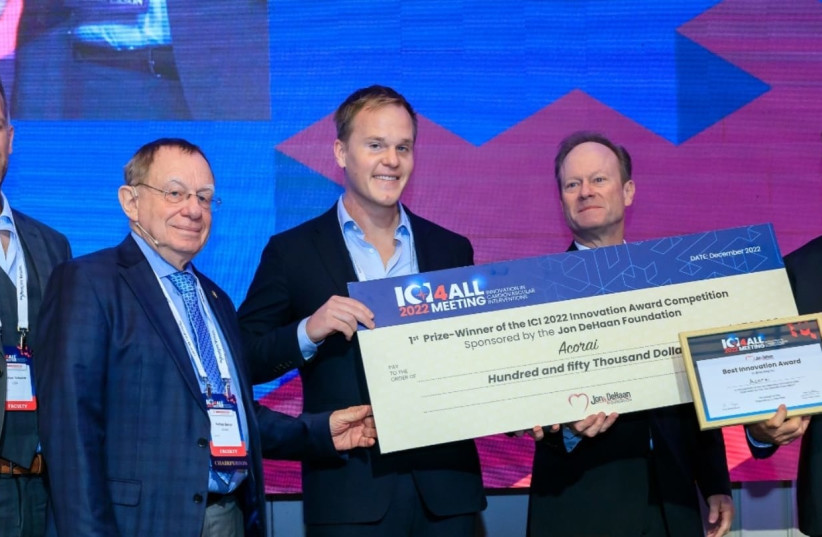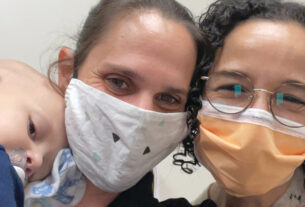Swedish start-up Acorai won the ICI conference for innovation in cardiology in Tel Aviv with its new innovation: A smart stethoscope that can help diagnose heart problems.
The firm was one of 64 start-ups to take part in the competition featuring medical innovation start-ups from around the world, though around 40% of them were Israeli. A total of 12 companies made it to the second round, half of which were Israeli start-ups.
The top prize was $200,000 from the DeHaan Foundation.
A smart stethoscope wins start-up conference in Israel
The smart stethoscope works as a non-invasive means of measuring pressure in the heart chambers. The doctor puts it on the patient’s chest where its sensitive sensors check movement and resonance to figure out the pressure in each chamber.
So far, preliminary studies conducted on 250 patients have shown positive results.
“It is a smart stethoscope like device, which transmits not only the sounds of the heart but also pressures and curves – the information obtained will be much better than what we doctors receive today,” explained conference co-organizer Prof. Haim Lotan, head of medical innovation at Hadassah-University Medical Center in Jerusalem.
“Instead of inserting tubes and catheters, Acorai’s development allows in a non-intrusive or invasive way to know the pressure situation in the heart chambers. It has sensitive sensors, which check movement and resonance and provide, according to the sensitivity and movement, a correlation with the pressures inside the heart. This can allow for immediate and well-adjusted treatment.”
“Instead of inserting tubes and catheters, Acorai’s development allows in a non-intrusive or invasive way to know the pressure situation in the heart chambers. It has sensitive sensors, which check movement and resonance and provide, according to the sensitivity and movement, a correlation with the pressures inside the heart. This can allow for immediate and well-adjusted treatment.”
Prof. Haim Lotan
Second-place at the conference went to Israeli start-up Append Medical, which developed a way to prevent strikes in atrial fibrillation – winning them a prize of $50,000.




